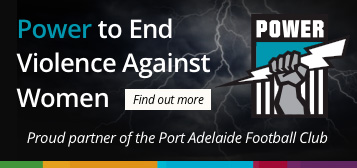The Melbourne Cup is anything but a celebration for women and children in vulnerable homes.
Centacare’s Vicki Lachlan says there is a significant rise in domestic violence on the first Tuesday in November, with alcohol and gambling creating a perfect storm for abuse – most commonly by a male perpetrator.
“If the money is gone after a day at the races or a Cup event, then that can have a big impact on the family,’’ said Vicki, Manager, Domestic Violence and Homelessness Services.
“It’s not only the loss of income, but there’s potential for behaviours and moods that put women and children at risk when he comes home.
“He won’t blame himself for losing on the races, he’ll blame the woman.’’
Research shows emergency department admissions, police recorded assaults and family incidents are elevated on Cup day.
In response, local support services are preparing for a spike in demand for outreach, emergency accommodation and crisis help, as the impact of race day celebrations hits home.
Vicki said the glamour of the Spring Carnival hid a dark side of problem gambling and increased accessibility to multiple betting platforms, via the internet, telephone and face-to-face formats.
“It’s like everything in today’s society – betting platforms are easier to access so you can also lose money quicker.
“There will be a lot of women feeling apprehensive about Tuesday.’’
The Cup is among a number of dates on the nation’s social calendar that put vulnerable women at a heightened risk of abuse.
Christmas and New Year also take a heavy toll on families in which perpetrators exercise power and control over their partner and children, Vicki said.
This year more hundreds of millions will be bet on the Melbourne Cup as once-a-year punters join regular gamblers for their annual flutter on the iconic event.
Centacare is currently involved in work with Government and other non-Government organisations regarding the development of practice frameworks for problem gambling and domestic violence.
This work has stemmed from national research recognising a link between domestic violence and gambling, and that both problems exist in many families.
“Centacare is pleased to be looking at how services might better respond when there is problem gambling and domestic violence, and while we recognise that gambling and domestic violence are not always interrelated, a lot of families see services for both issues but those services don’t always know about each other or how to cross-refer,’’ Vicki said.
“That’s what we are working to address.’’
Australia’s National Research Organisation for Women’s Safety (ANROWS) recently announced it would fund new research into the impact of gambling on domestic violence.
The study is one of three ANROWS projects to address key gaps in current evidence on the experience of violence, and the prevention and response to violence against women.
Key research questions include how problem gambling might contribute to domestic violence towards women – when it is linked to his gambling or her own habit – and the use of economic abuse to sustain the perpetrator’s gambling.
New research released last month by the Australian Gambling Research Centre (AGRC) found nearly one million Australians regularly gamble on horse and dog racing, with about 41 per cent experiencing one or more gambling-related problems such as relationship issues, financial pressures and health problems.
The AGRC analysed data collected through the 2015 Household, Income and Labour Dynamics in Australia survey.
In the lead-up to Cup day, AGRC Researcher Dr Andrew Armstrong said “regular bettors should consider their financial position carefully and seek help if they are concerned they are at risk of gambling-related problems.’’







